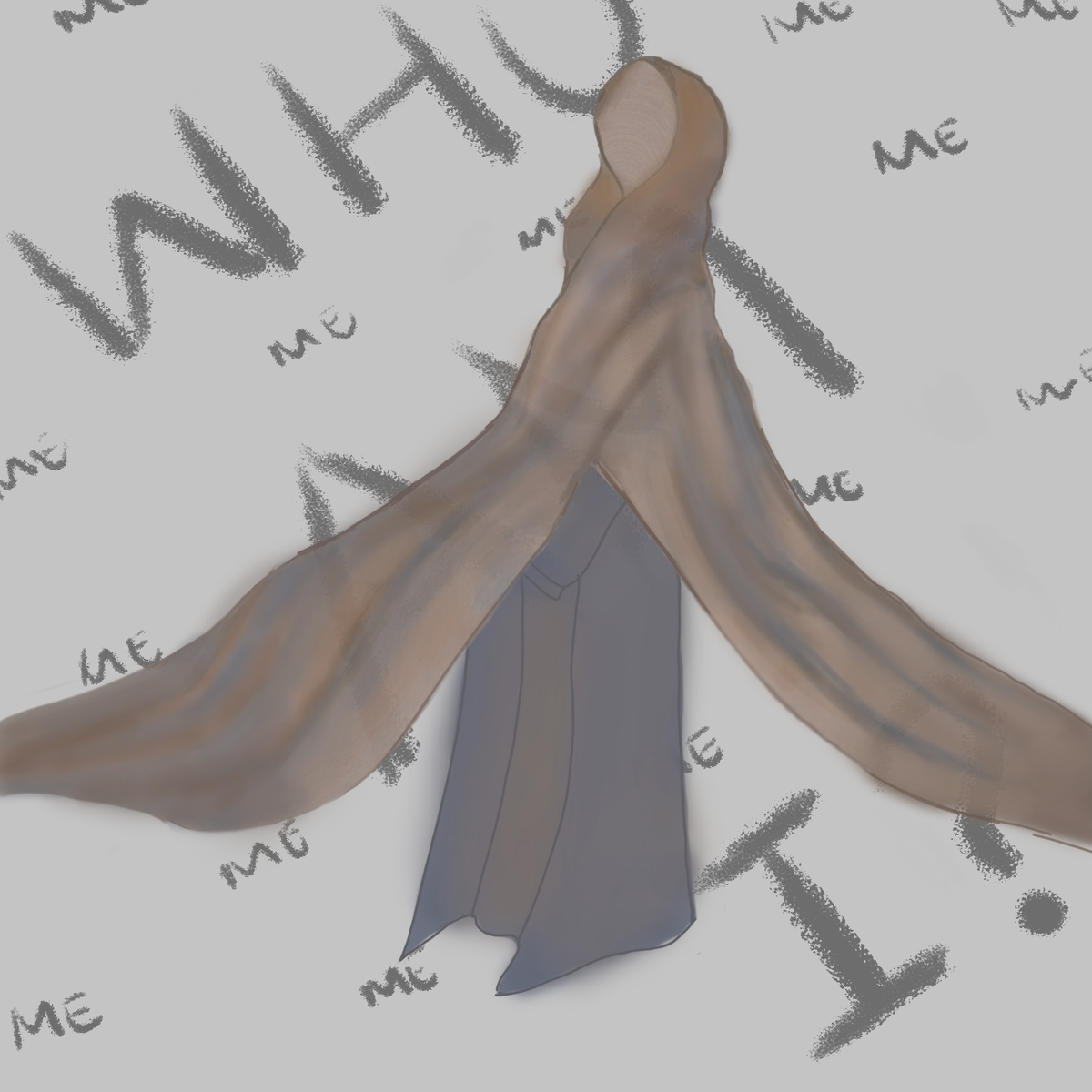My Hijab is my Identity
Viewing the world through the lens of a Muslim girl wearing a hijab. Exploring the idea of modesty and making peace within oneself in a society of full of cultural differences.

My hijab is an identity card. It's like someone is waving a sign above my head saying that I’m a Muslim. Do I want that? Of course! There is no shame in it. I am proud of who I am. It is a source of strength. Despite the strength within it, there is a slight insecurity. Constant thoughts regarding my clothes. Is it too bright? If I wear this, will it seem too flashy? How do I fit in? It’s ironic how I would want to dress without drawing attention, but end up doing so simply because my clothes aren’t what people usually see. It’s not the regular pants or jeans and t-shirt combo with a hoodie slung over. It’s floor-length dresses that are modest in shape with a simple design. But is it really simple? At times, it feels like a beacon of light glaring so brightly at me. Sometimes it feels like I am a foreigner in the land where I was born. It creates insecurity. Maybe I shouldn’t wear this. Perhaps I should just opt for pants? It’s normal, it's what everyone wears. These thoughts plagued my mind constantly as I left high school.
Transitioning from the standard school uniform into clothes that schools would’ve dubbed ‘mufti’ was difficult. Finding the balance between modesty, fashion, comfort, and simply fitting in was difficult. It was as if I had to sacrifice one thing to achieve another. But with time comes understanding. Maturing is realising that nothing needs to be sacrificed for the other. If I failed to fit in due to my clothing choices, I will not lose anything. Instead, I would gain something—an affirmation of my choices and like-minded people who are a source of encouragement. Like every individual, the clothes that adorn myself do not define who I am as a person. Who I am as a person is never defined by the clothes I wear. It may tell a small story, but it is only a portion of who we are as individuals. The way society judges your appearance is like a shackle that is difficult to break free from.
The stereotypes and the constant generalisation. At one point, it was about convincing people of who I am. As I grew, I realised that no one needs convincing. If a person’s perspective of me is defined particularly by the clothes I wear, they are obviously not the person I wish to befriend. If it is a significant barrier between us, then perhaps we don’t share the same views.
How do we address these differences between a Muslim and a non Muslim? Knowledge and learning. These two words sum up what we as Muslims must always do. Seek knowledge and constantly learn. But do we have to be responsible for the ignorance of others? We must also understand that people typically do not understand because we, as Muslims, have not been able to provide adequate answers to these stereotypes and generalisations that have allowed it to grow in such a way. A question commonly asked is “Why do you wear a hijab?”. I’ll give you my answer. It’s a symbol of modesty and an act of belief. The word ‘hijab’ means ‘to cover’. It isn’t just about covering your hair, it's about the way you dress and act. However, this answer may not satisfy others. What they see as foreign is common for me.
Thinking back on my time in Muslim countries, every individual is similar. The same hijab, the same abaya. There were no differences. The way I dress on my day-to-day doesn’t result in staring. Individuals are similar; we share the same beliefs and attire. It feels like home. Take Malaysia, for example. Individuals wear clothes of varying colours. No one stands out, everyone's the same. I once heard someone say that in countries like this, they don't have to worry about looking like a princess every time they go out. It's funny how simple and modest dresses get people thinking they are fancy. This could very well be due to differences in culture. What I consider normal is certainly not what they believe to be normal. But constantly encourage myself to fulfil this symbol of modesty, to uphold its meaning and do right by it, as it is a symbol of faith and part of my identity.
My hijab and I are intertwined. We go hand-in-hand, and I hope for that to never change.
Let this serve as a connection to someone who feels similarly and wants people to know that they are not alone in their experiences. There are people just like you.
So whenever someone asks you who you are, stand proudly and confidently and introduce yourself, showing off your identity as a Muslim. We are who we are, no different from others except for the fabric that wraps our heads.




